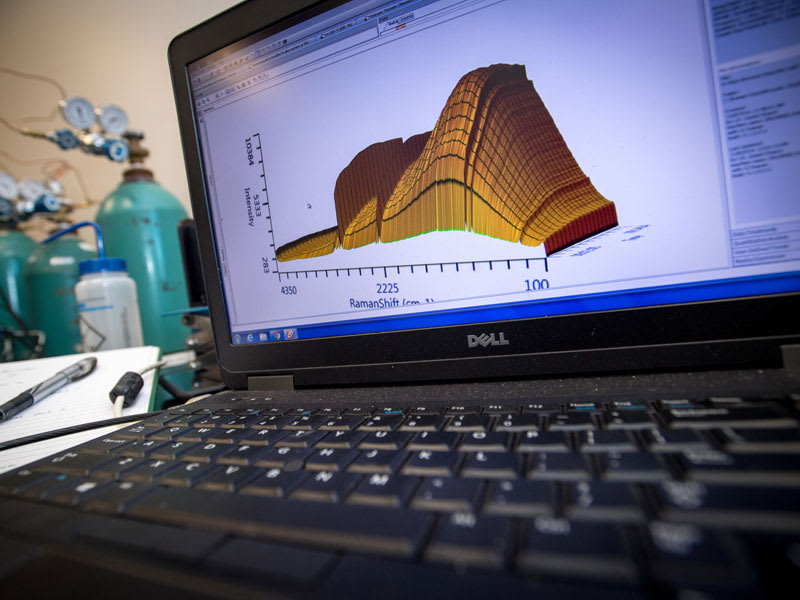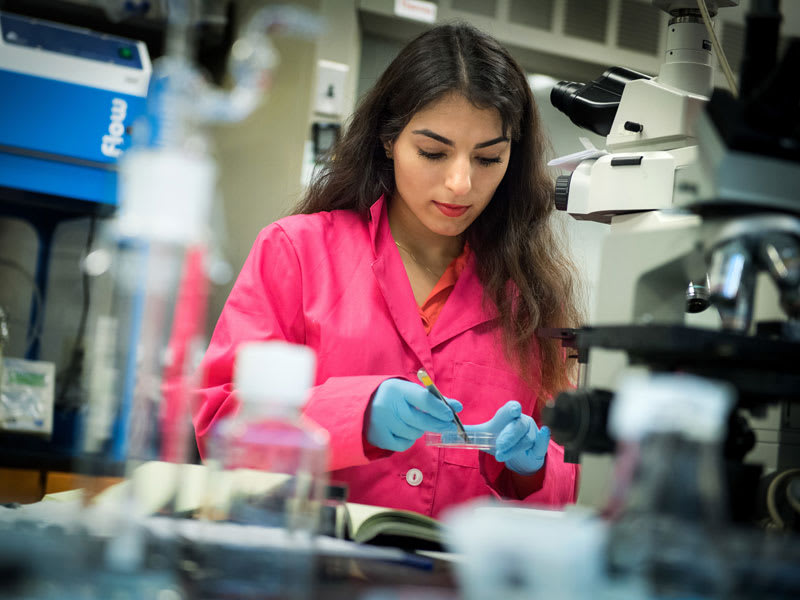
Tulane University - Department of Chemical and Biomolecular Engineering

Introduction
Learn. Discover. Collaborate. Innovate.
The PhD program in Chemical and Biomolecular Engineering (CBE) at Tulane University offers students a high level education that is centered around the opportunity to perform diverse, cutting edge, interdisciplinary research under the close mentorship of our faculty members.
The department consists of 13 tenure-track faculty members with unique backgrounds and research interests ranging from statistical mechanics and thermodynamics to molecular simulations, energy, the environment, and cellular engineering. Our graduate students come from around the world. The current faculty to graduate student ratio of approximately 3 allows for individualized attention to the progress of each student leading to a personalized experience here at Tulane.
Tulane University and the CBE Department offer competitive financial packages to their graduate students including fellowship and research assistantships, generous stipends, tuition fees, and subsidized health insurance.
Dr. Julie Albert talks about Developing Nano- and Micro- Structured Polymeric Materials
Mission
The mission of the Department of Chemical and Biomolecular Engineering is to provide the highest quality programs to educate students at all levels in the principles and applications of Chemical and Biomolecular Engineering, within the environment of Tulane University. As part of this mission, students perform innovative and high-quality research that advances engineering solutions as applied to health, energy, and the environment.
Research
Our research areas represent new and exciting directions in Chemical Engineering, centered on the themes of Advanced Materials, Biomolecular Engineering, and Novel Environmental Technologies. For more information on research areas, please visit https://sse.tulane.edu/cbe/research
The School of Science and Engineering generates millions in research dollars for the University, champions undergraduate research opportunities, and annually graduates the largest number of doctoral students at Tulane.

About the Department of Chemical and Biomolecular Engineering
The department is the third in the United States and has its roots in industrial chemistry. Today, the department continues a strong tradition of rigorous learning coupled with the joy of discovery. The department values scholarship and seeks to provide its students with all opportunities to develop their academic potential. Class sizes are small and the student to faculty ratio in the department is typically less than 10:1. The faculty has an open-door policy and is accessible to students at all times of the working day. There are tremendous opportunities for undergraduates to participate in research, and the faculty encourages and promotes undergraduate involvement in research. The department has ten faculty members and sustains an intensive graduate research program leading up to the doctoral degree.
